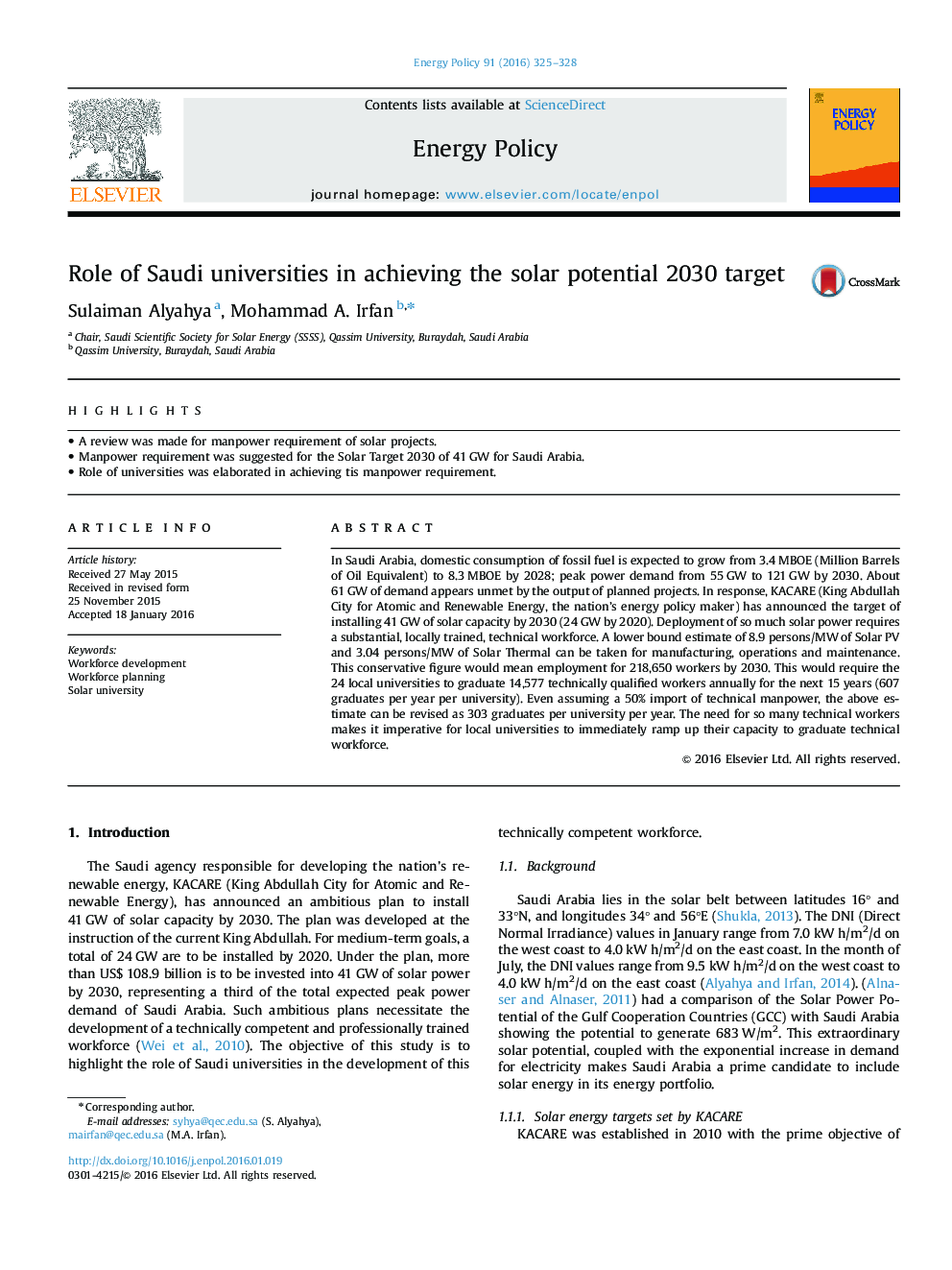| Article ID | Journal | Published Year | Pages | File Type |
|---|---|---|---|---|
| 7399726 | Energy Policy | 2016 | 4 Pages |
Abstract
In Saudi Arabia, domestic consumption of fossil fuel is expected to grow from 3.4Â MBOE (Million Barrels of Oil Equivalent) to 8.3Â MBOE by 2028; peak power demand from 55Â GW to 121Â GW by 2030. About 61Â GW of demand appears unmet by the output of planned projects. In response, KACARE (King Abdullah City for Atomic and Renewable Energy, the nation's energy policy maker) has announced the target of installing 41Â GW of solar capacity by 2030 (24Â GW by 2020). Deployment of so much solar power requires a substantial, locally trained, technical workforce. A lower bound estimate of 8.9 persons/MW of Solar PV and 3.04 persons/MW of Solar Thermal can be taken for manufacturing, operations and maintenance. This conservative figure would mean employment for 218,650 workers by 2030. This would require the 24 local universities to graduate 14,577 technically qualified workers annually for the next 15 years (607 graduates per year per university). Even assuming a 50% import of technical manpower, the above estimate can be revised as 303 graduates per university per year. The need for so many technical workers makes it imperative for local universities to immediately ramp up their capacity to graduate technical workforce.
Related Topics
Physical Sciences and Engineering
Energy
Energy Engineering and Power Technology
Authors
Sulaiman Alyahya, Mohammad A. Irfan,
